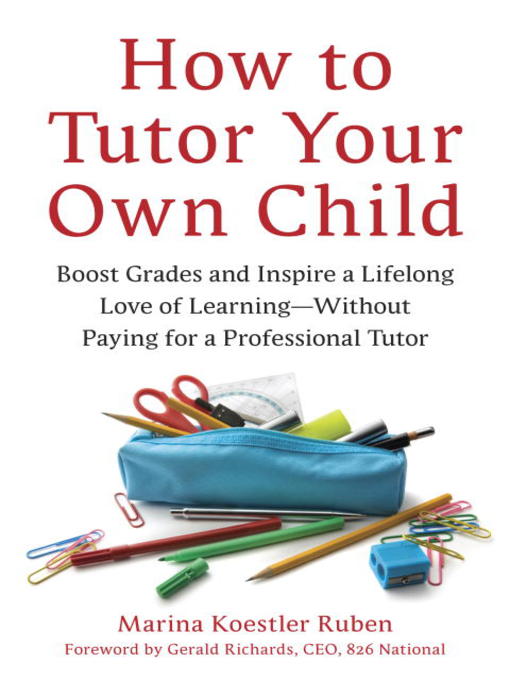
How to Tutor Your Own Child
Boost Grades and Inspire a Lifelong Love of Learning—Without Paying for a Tutor
- اطلاعات
- نقد و بررسی
- دیدگاه کاربران
نقد و بررسی

June 1, 2011
This book is for parents interested in providing holistic learning opportunities for their children. Ruben advocates the importance of "parent-tutoring" as an effective supplement to regular education, and she derives many examples from her experiences as a professional tutor. She begins with tips to engage children in the learning process and proceeds to ideas to make education fun and creative. Parent tutors are also encouraged to model a love of learning for their students. In "Tutor Toolboxes," Ruben recommends everything from mnemonic devices to organizing learning spaces and materials to, most important, encouraging reluctant children. Each chapter ends with a "Tutor Take-Away" table that summarizes the section. Parents with teens will be most interested in the final part of the book, which focuses on how to adjust educational approaches for adolescents. VERDICT Parents who have trouble motivating their children will find this book (which considers K-12 students, with a particular focus on teens) useful and will appreciate Ruben's organization and chapter summations; parents of children with special needs or disabilities should look elsewhere.--Karen McCoy, John F. Reed Lib., Durango, CO
Copyright 2011 Library Journal, LLC Used with permission.

July 1, 2011
Ruben acknowledges parents as children's first teachers and encourages them not to lose those positions when the kids go to school but to adopt the roles of tutors instead. An in-house writing tutor at prestigious Sidwell Friends School, Ruben urges parents to train themselves to look at the home environment the way teachers would, consider what children do and do not understand about it, and fill in the gaps. Parents don't need teaching degrees or any degrees at all, she says. They have the advantage of constant access to their children, and if they can bring enthusiasm to the task, they can more than make up for any lack of expertise. She provides tips on everything from stocking a home classroom to providing nutritional snacks. Other suggestions include breaking down assignments into achievable parts and at-home immersions through thematic mini-lessons tied to such activities as listening to music from a particular historical or literary era that is being studied. Parents should appreciate this fresh perspective on helping children improve school performance.(Reprinted with permission of Booklist, copyright 2011, American Library Association.)




دیدگاه کاربران